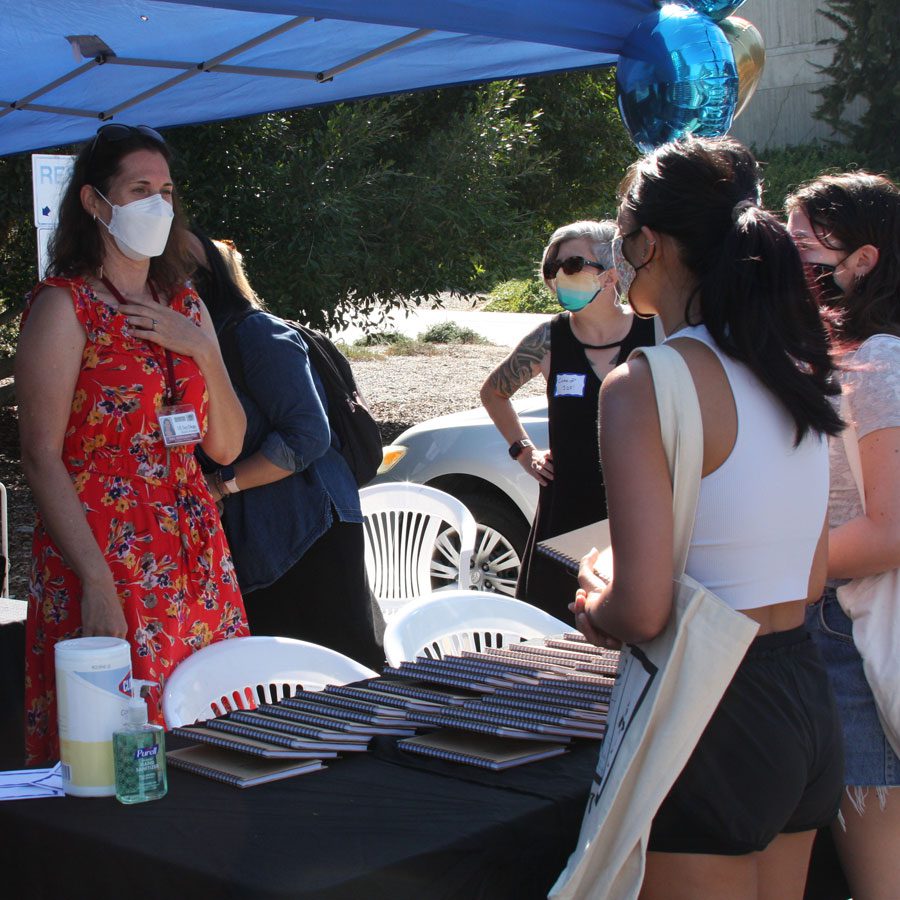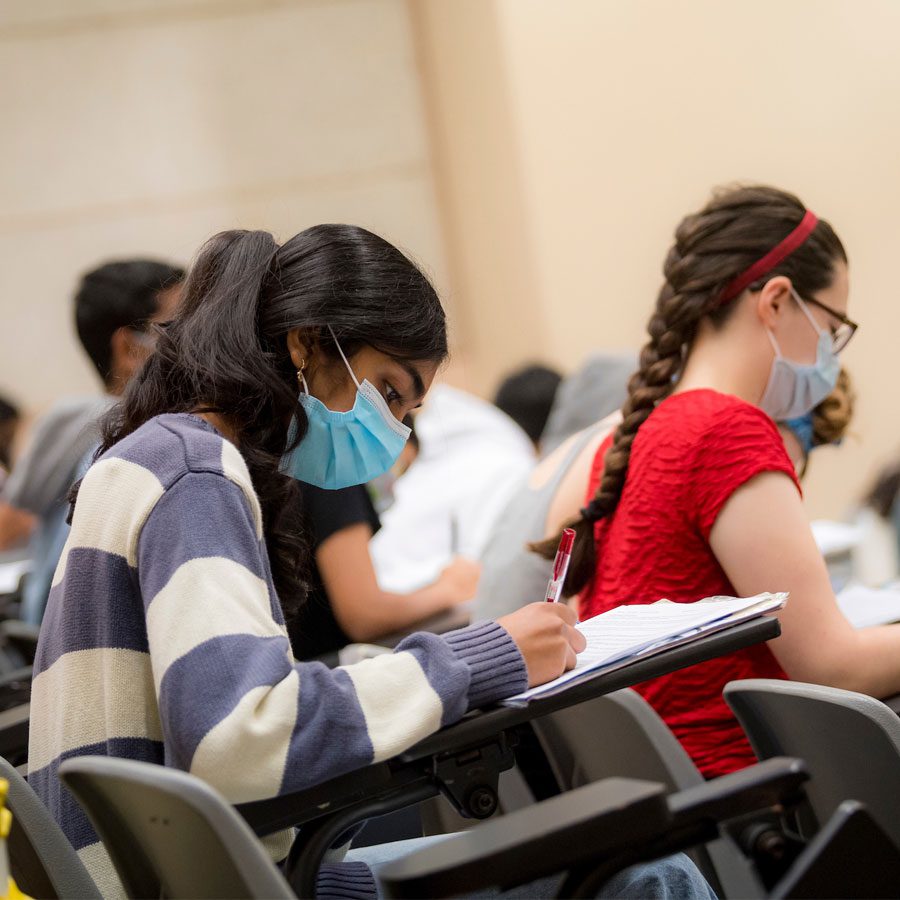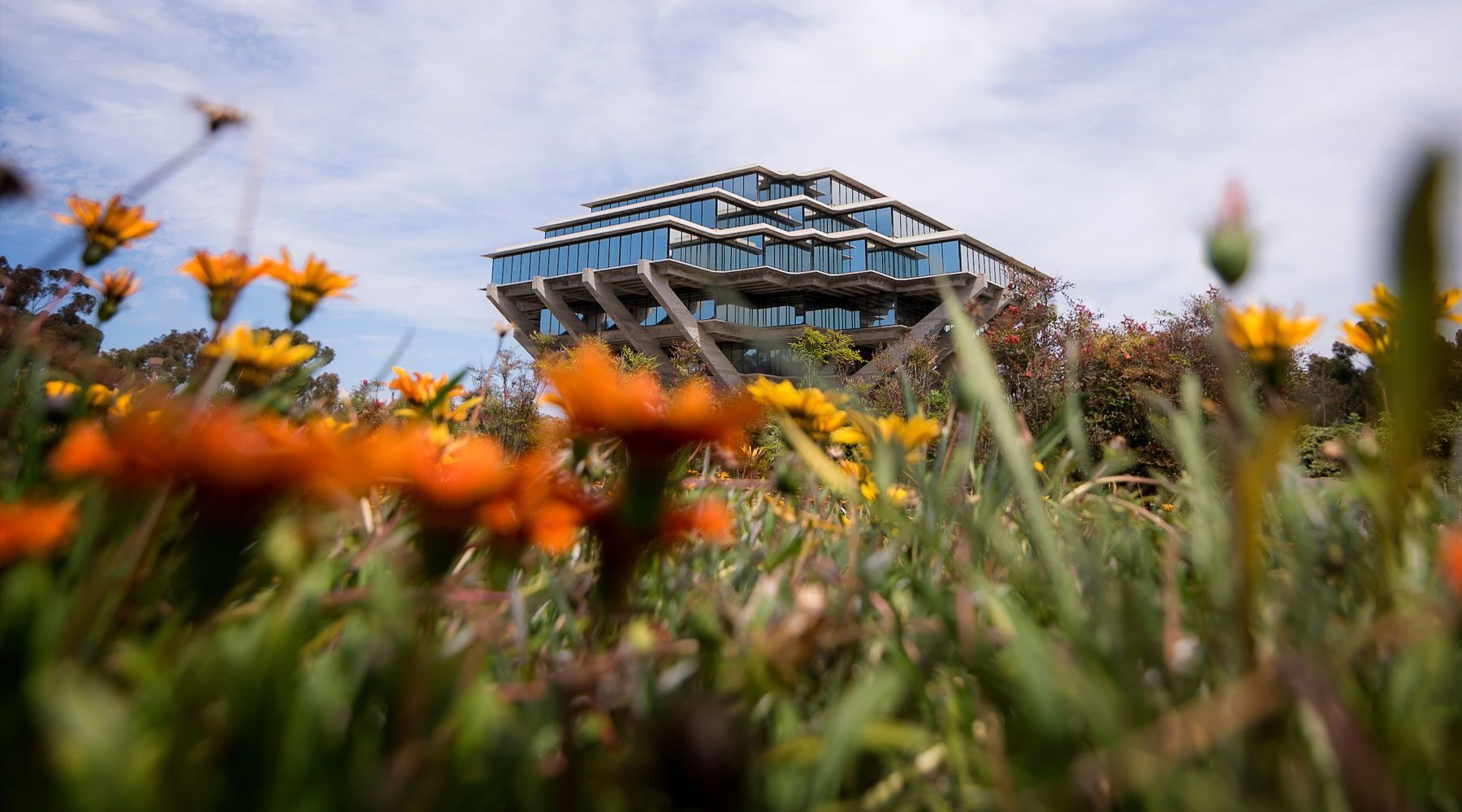Educating Outside the Box
A 21st Century School Teaches a Diverse Student Body How to Think Disruptively
On the first day of Introduction to Epidemiology, or FMPH 101, University of California San Diego Professor Kimberly Brouwer asks students why they are majoring in public health and taking a course that covers the basic principles of epidemiology.
Surprisingly, not all public health students intend on careers in this field. And this excites Brouwer, the interim associate dean for education and student affairs and chief of the Division of Global Health at the Herbert Wertheim School of Public Health and Human Longevity Science at UC San Diego.
“This is the exciting aspect of how we can train people from many different fields in public health, so that they can approach medical problems from a public health and prevention light. Or approach urban planning and design with an idea on how communities can be better designed to promote healthy lifestyles to tackle the public health problems we are facing now,” said Brouwer, who holds a doctorate in molecular epidemiology.
With seven education programs, the Herbert Wertheim School of Public Health is cultivating the next generation of diverse public health professionals and leaders through innovative and transformational education programs including bachelor’s, master’s and doctoral degrees as well as a preventive medicine residency.
“As one of the few public health programs linked to an academic hospital, our proximity to the United States and Mexico border, and a multi-disciplinary approach to public health, our curriculum offers students a unique opportunity to study population health, health care inequities and the development of preventive health strategies like few others can,” said Sara McMenamin, Ph.D., M.P.H., associate professor and interim assistant dean for undergraduate education.

Since the Herbert Wertheim School of Public Health launched in the 2020-2021 academic year, the Bachelor of Science in Public Health program added six new concentrations: Biostatistics, Climate & Environmental Sciences, Community Health Sciences, Epidemiology, Health Policy and Management Sciences, and Medicine Sciences. Enrollment increased dramatically in the last year with more than 600 students selecting it as their major.
Among students who indicated their status when enrolling, 40% identified as being first-generation college students and more than 70% as being members of an under-represented racial or ethnic group, said Brouwer.
Advancing wellbeing and social justice for all people through public health is part of the Herbert Wertheim School of Public Health’s vision. Education plays a key role in making the vision reality.
“Public universities are especially exciting because they have a more diverse student body. You have many socioeconomic spectrums and cultures being represented which creates a stimulating environment,” said Brouwer.
“At times, I am teaching students from the communities we are trying to reach in our research work. For instance, I had students who were resettled refugees from Ethiopia who were talking about the increasing heroin epidemic in their community. At the same time, I was doing a health-needs assessment with resettled refugees. It was helpful to have a diverse student body and people who represent the communities we work in.”
To continue its mission of equity in public health and education, the Master of Public Health (MPH) program awarded its first two Diversity Fellowships in the ’20-’21 academic year.
“Public health has been described as the intersection of epidemiology and social justice. Events of the last year have certainly emphasized this observation. The Master of Public Health program strives to address both of these critical aspects of public health with a program of academic rigor and an emphasis on equity and social justice,” said Michael Pratt, M.D., M.P.H., professor, interim assistant dean for graduate education and director of the MPH program.
“We are delighted to be part of the dynamic and diverse San Diego public health community. Our faculty and students exemplify the diversity, innovation, and excellence of 21st century California and public health.”
In the school’s first year, the MPH program added the Technology and Precision Health concentration to its existing portfolio that includes Epidemiology, Health Behavior, Public Mental Health and General Public Health. It also approved a sixth concentration (Health Policy) that launched in the 2021-2022 academic year.
In 2020, Margaux Stack-Babich enrolled in the MPH program, under the health behavior concentration, after spending 10 years working in life sciences. On the job, Stack-Babich recognized the importance of health promotion and education in disease prevention, but she felt she needed a master’s degree to progress in the field.
“I applied to many programs, but I really wanted to attend UC San Diego,” said Stack-Babich.
“It’s palpable to me, working directly with clinicians, researchers and scientists. This perspective plus the new school of public health and the collaborative approach to problem solving really excited me to be part of something new. Something breaking boundaries.”
Another program breaking boundaries is the San Diego State University/UC San Diego Joint Doctoral Program in Public Health. The three tracks in Epidemiology, Health Behavior and Global Health remain strong, with a record number of applicants. During a racially charged year, students in this program hosted a Racism in Public Health seminar series as part of other social justice activities.
“UC San Diego is the place where you can obtain a world-class education in public health and do so in a diverse environment. We know that diversity and inclusion are critical components of excellence in education. So we’ve embraced this notion that we’re going to deliver the highest quality education to a diverse group of individuals,” said Cheryl A.M. Anderson, Ph.D., professor and founding dean of the Herbert Wertheim School of Public Health and Human Longevity Science and Hood Family Endowed Dean’s Chair in Public Health.
Among the degrees students can select at the Herbert Wertheim School of Public Health, is the Master of Science in Biostatistics which fully launched in ’20-’21. And, in 2021, the doctoral program in biostatistics graduated its first three students, who went on to academic or industry positions.
“I applied to many programs, but I really wanted to attend UC San Diego.”
– Margaux Stack-Babich, Master of Public Health student
The Master of Advanced Studies in the Leadership of Healthcare Organizations focuses on building leadership and management skills for healthcare professionals. The curriculum integrates critical healthcare issues with foundational knowledge in topics such as finance, law, technology, and leadership, including inspiring team performance and implementing organizational change. Through a highly interactive, seminar-style classroom environment with peers and faculty, participants directly apply business knowledge and insights to current healthcare challenges. The program continues to attract local and international students, such as physician, administrators and bio-tech managers, and has more than 120 graduates to date.
With rotations at UC San Diego and in other community health programs, the Herbert Wertheim School of Public Health maintains close ties with medicine through the UC San Diego/ San Diego State University General Preventive Medicine Residency program, which provides training on competencies to deal with clinical preventive medicine and population-level problems such as health care for the indigent, communicable disease control, and health care delivery.
“UC San Diego is the right place right now for public health; in part because students are taught to be difference makers, to not necessarily accept what was done in the past and to frame problems differently,” said Dennis Trinidad, Ph.D., M.P.H, professor and director of the Bachelor of Science in Public Health program. “We have to ask ourselves: How do we, as instructors, faculty, administrators, give room for students to think differently and think disruptively, not linearly?”

